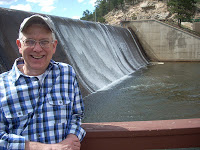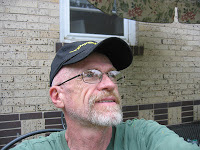“I don’t know.” What a topic, so open. It reminds me of doubt, the inability to choose, even loss of memory. Not knowing was a common experience for me as a kid. I recall looking at souvenirs in an Estes Park shop one summer afternoon. I had money and wanted to buy something with it. I looked at animal figurines wondering which one to select. I didn’t know. Finally, I bought a bear. As an adult, I reasoned I did so because of its connection to Native American life and lore. I never regretted that choice and the bear turned out to be an interesting animal and somewhat a symbol for me.
I am quite aware of the problem of choice for late teens who may have vocational interests, talents, and potential. I certainly was one of those. Having been recruited for ministry, I watched that world carefully. I had many other interests as well but finally went with the church work. That choice was much more important than deciding between kinds of candy or cookies or figurines. I didn’t regret my ministerial choice or career even though I eventually left it. At age 50 I chose to get out of it having tired of the incessant meetings. I knew when to leave.
In other ways, I said, “I don’t know,” but when I did, I believe saying so might have been a dodge, a frustration, or sometimes the truth. Still, I think about it; I have to make decisions. When I choose, I try to stick with the program, and I am a pretty good sticker: witness 29 years with my wife, 32 years in church work, many years directing vocal ensembles, 20 years developing curriculum resources, years of work on several manuscripts, 15 years with Jim and Ruth, quite a few years with SAGE’s Telling Your Story, almost as many years the SAGE blog, on and on. I feel I just don’t know so often, yet I do know. My doing is related to a belief fostered by Mother who led Girl Scout troops, reared five children, presided over the PTA, taught leadership skills to adults and youth, and organized in the community. She said, “You set your mind to the task and do it. You can do it.” So that’s what I have done. I may know that I don’t know. I certainly didn’t know anything about blogs, but now I have two of them. Too often when I turn on my computer I can’t get into the program. I don’t know, but I think it through overcoming my frustration and eventually complete the task at hand.
Ninety-five-year-old Ruth often says to me, “I don’t know.” While we are working on our jigsaw puzzles—we’re in our fifteenth year—I ask about her past, her ideas, her kids. In answer to many questions, she simply says, “I don’t know.” I envy her. If at age seventy I said “I don’t know” as often as she does, they’d hurry me off for a brain scan and some therapy. But at 95 you can say what you want. Nobody will argue. I told Ruth our topic for today and said I wanted to tell a story about her. She scrunched up her face in distaste. “But, Ruth,” I said, “the group loves when I include you in my stories.” I made no promises to her. You see, for me “I don’t know” is the best line from a 95-year-old who looking me straight in the face said, “You’d better not.” Apparently, I didn‘t know how to be scared of her.
© 10 July 2017
About the Author
Phillip Hoyle lives in Denver and spends his
time writing, painting, and socializing. In general, he keeps busy with groups
of writers and artists. Following thirty-two years in church work and fifteen
in a therapeutic massage practice, he now focuses on creating beauty. He
volunteers at The Center leading the SAGE program “Telling Your Story.”
He also blogs at artandmorebyphilhoyle.blogspot.com


